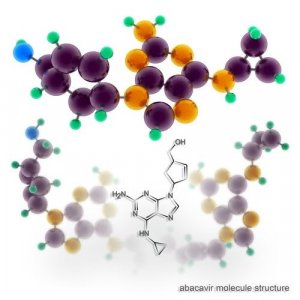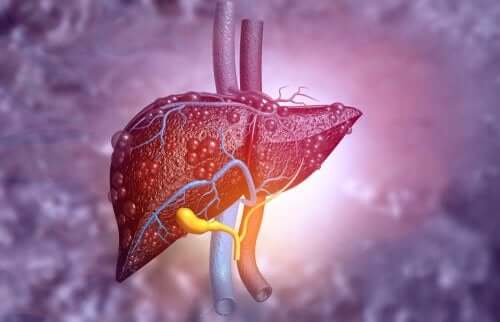Abacavir: About HIV Treatment and Side Effects

Abacavir (or ABC) is a prescription drug used in the treatment of AIDS/HIV in adults and children over three months of age. Also, it’s always administered along with other medications designed to treat HIV infection.
Abacavir is a prescription medication used to treat HIV/AIDS and belongs to the group of reverse transcriptase inhibitors, nucleoside analogues.
These drugs are effective because they can block an enzyme from the virus that produces AIDS, called reverse transcriptase. By blocking this enzyme, which is a protein, these drugs prevent the multiplication of the virus and therefore can reduce the concentration of the virus in the body.
It’s very important to keep in mind that HIV/AIDS medications are not a cure. Taking the right combination of medications for each patient daily can help those infected with HIV live a longer life. Therefore, an HIV treatment regimen can help patients go from acute to chronic, but it does not cure them. Also, however, taking medication daily can also reduce the risk of transmitting HIV/AIDS to others.
You might like: HIV/AIDS Vaccine Soon to Be Tested
What are HIV and AIDS?

To understand how abacavir works, it’s important to know some basic things about what it’s used to treat: HIV infection, or AIDS.
Many people mix up the terms HIV and AIDS. However, it’s essential to how the differences between them:
- HIV, or human immunodeficiency virus, is a microorganism that can be present in the human body whether symptoms manifest or not. This virus attacks the immune system, weakening it. As a consequence, the body gradually loses the ability to defend itself against infections or other diseases.
- AIDS, or acquired immunodeficiency syndrome, is triggered when a person has been infected with HIV for many years.
Today, the majority of people who are diagnosed with this infection early on and take HIV medications such as abacavir can lead long and fulfilling lives.
How is HIV transmitted?
Overall, HIV is spread when blood, or infected body fluids, enter another person’s body. This can happen due to:
- Having unprotected sex or barrier method failure during sex.
- Sharing needles to inject drugs or get tattoos.
- Transfer from mother to child during pregnancy, delivery or breastfeeding.
Also, you might like: The HIV Virus Was Completely Eliminated from a British Patient’s Blood
The side effects of abacavir

Like all medicines, abacavir can also trigger a series of side effects that you must take into account if you’re taking this medication.
Overall, if you suffer from any of the following symptoms of an allergic reaction, you should consult your doctor immediately and stop taking abacavir:
- Fever.
- Rash.
- Nausea and vomiting.
- Diarrhea and stomachache.
- A general feeling of malaise.
- Shortness of breath.
- Cough and sore throat.
Lactic acidosis with abacavir
In addition to the previously mentioned side effects, abacavir can also produce lactic acidosis, the accumulation of lactic acid in the blood. The symptoms that may accompany this condition are:
- Pain and muscle weakness.
- Numbness or feeling of cold in the arms and legs.
- Difficulty breathing.
- Stomachache, nausea, and vomiting.
- Rapid heartbeat.
- Dizziness.
- Weakness and tiredness.
Liver problems

This antiviral medication can also trigger a series of serious effects on the liver. Therefore, you should contact your doctor if you are taking abacavir and are experiencing any of the following symptoms:
- Pain in the upper quadrants of the stomach.
- Itchiness.
- Loss of appetite.
- Dark urine.
- Clay-colored stools.
- Jaundice: yellowish pigmentation of the skin and mucous membranes.
Other side effects of abacavir
Apart from the aforementioned side effects, abacavir can also trigger additional adverse effects. These can include changes in the immune system or an increased risk of heart attack or myocardial infarction.
These particular changes in the immune system are referred to as immune reconstitution inflammatory syndrome or IRIS. IRIS is a condition that sometimes occurs when your immune system begins to recover after treatment with an HIV drug such as abacavir. As your immune system strengthens, it may react to and combat an infection more intensely, triggering a series of symptoms.
Conclusion
Abacavir is a drug indicated for the treatment of HIV infection. However, neither this nor any other antiviral drug can completely cure patients with this disease.
What these drugs do is make the disease chronic and manageable instead of acute and immediately life-threatening. As a result, abacavir can allow the patient to improve their quality of life and significantly prolong their lives.
All cited sources were thoroughly reviewed by our team to ensure their quality, reliability, currency, and validity. The bibliography of this article was considered reliable and of academic or scientific accuracy.
- Cameron, P. U., & Trubiano, J. A. (2017). Abacavir. In Kucers the Use of Antibiotics: A Clinical Review of Antibacterial, Antifungal, Antiparasitic, and Antiviral Drugs, Seventh Edition. https://doi.org/10.1201/9781315152110
- Hughes, C. A., Foisy, M. M., Dewhurst, N., Higgins, N., Robinson, L., Kelly, D. V., & Lechelt, K. E. (2008). Abacavir hypersensitivity reaction: An update. Annals of Pharmacotherapy. https://doi.org/10.1345/aph.1K522
- Lundgren, J. D. (2008). Use of nucleoside reverse transcriptase inhibitors and risk of myocardial infarction in HIV-infected patients. AIDS. https://doi.org/10.1097/QAD.0b013e32830fe35e
This text is provided for informational purposes only and does not replace consultation with a professional. If in doubt, consult your specialist.








